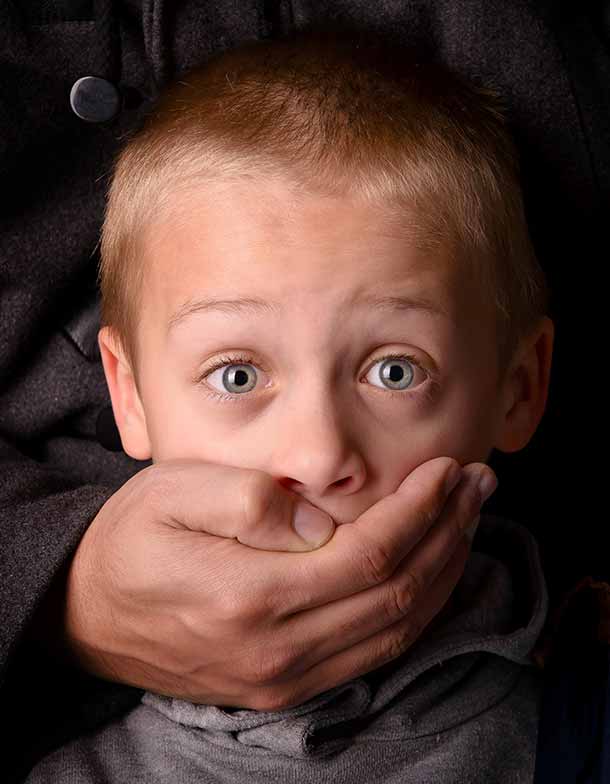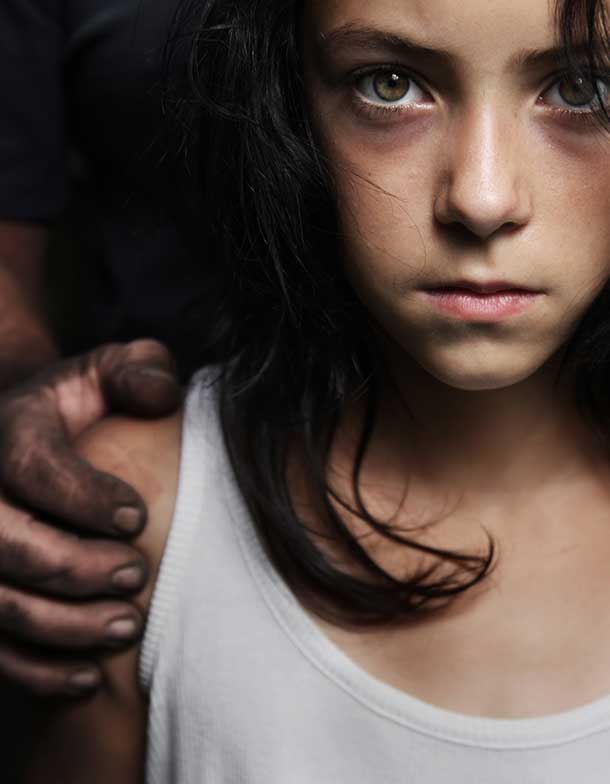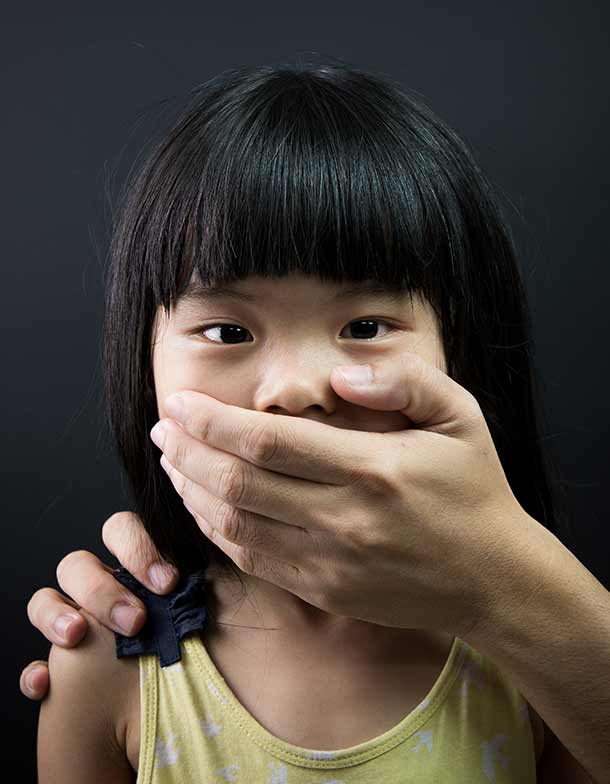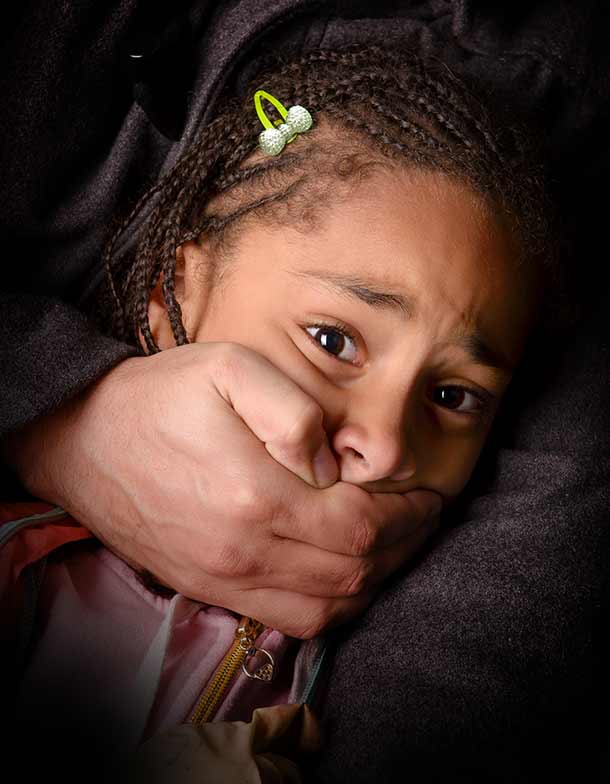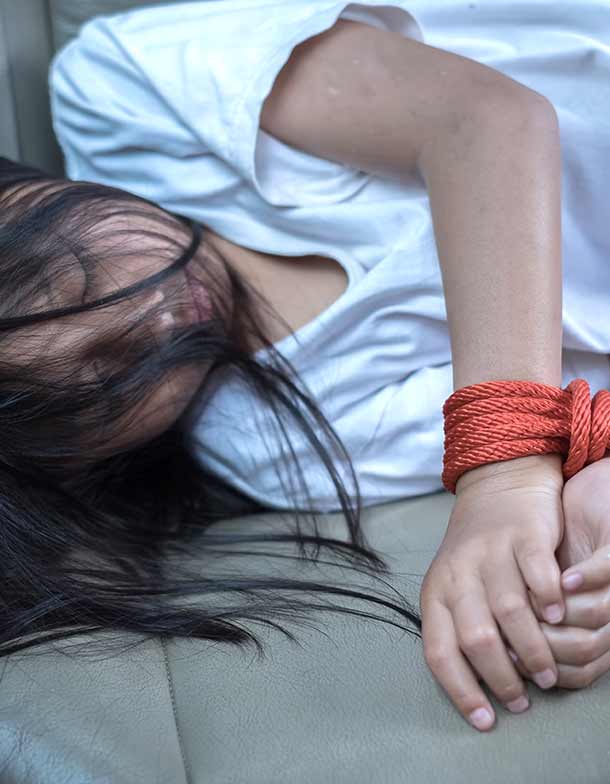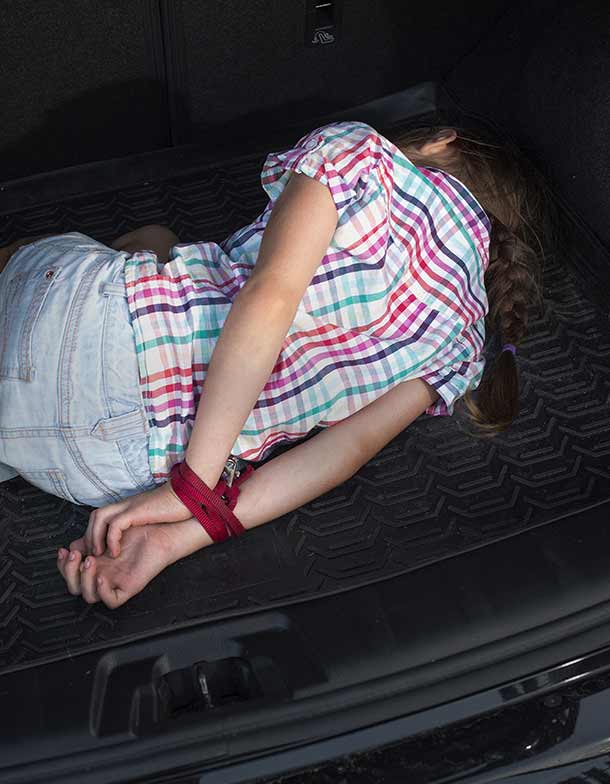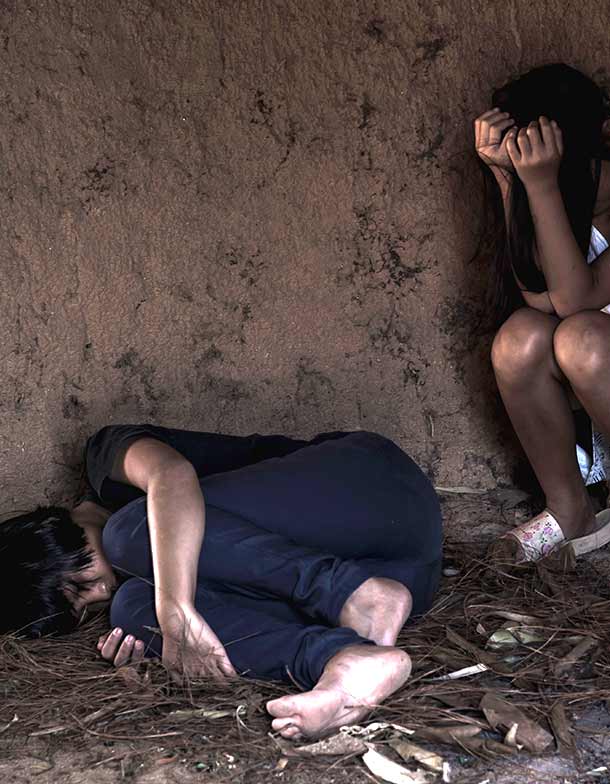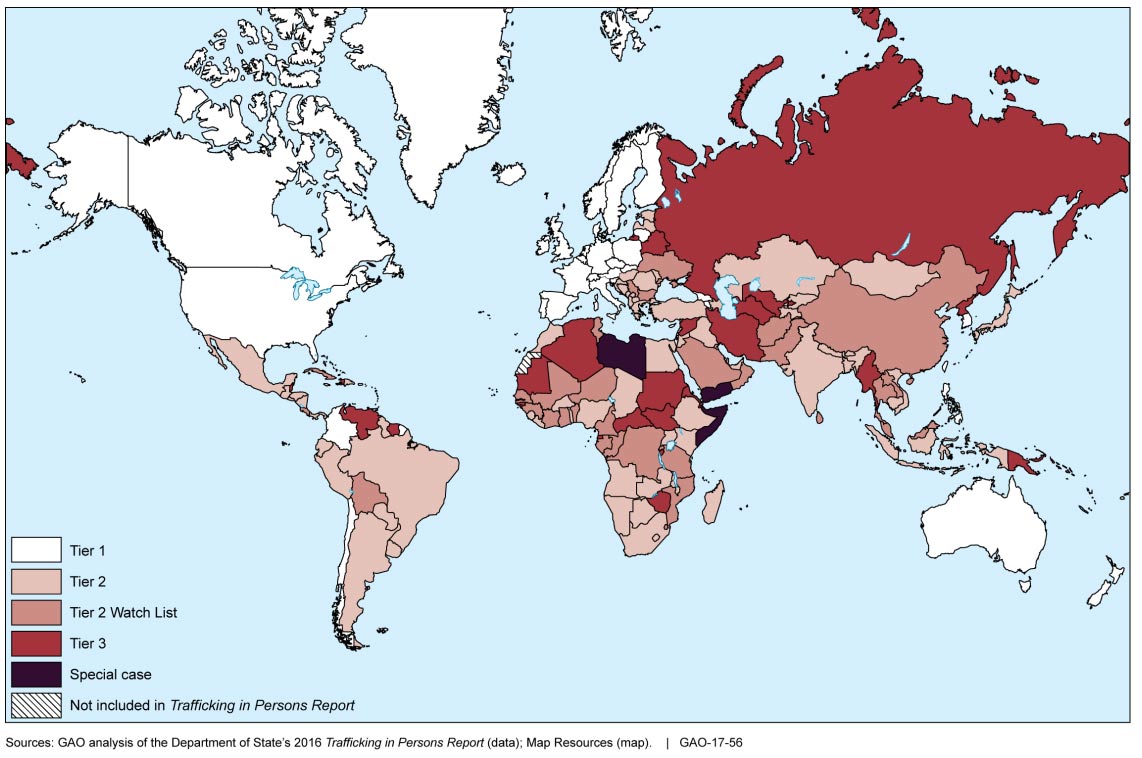What Are Governments Doing?
What are our governments doing to stop sex trafficking of children?
Sex trafficking, exploitation, and slavery of minors has sadly become one of the most lucrative industries in the world today.
Child sex trafficking is the recruitment, harboring, transportation, provision, obtaining, patronizing, or soliciting of a minor for a commercial sex act. Victims are lured-in with an offer of food, clothes, attention, friendship, love, and a seemingly better and safe place to sleep. After cultivating a relationship with the child, and engendering a false sense of trust, the trafficker will begin engaging the child in prostitution, and will trap them in this lifestyle through emotional, physical, and psychological abuse. It is important to know the distinction between forced sex slavery and prostitution by choice.1
Our children are victims, and for these crimes to be put to an end, governments must be involved.
The efforts and actions of governments to combat trafficking have been measured and classified by a report called Trafficking in Persons (TIP) which is published annually by the U.S. Department of State. The classification is based on the government’s compliance with the Trafficking Victims Protection Act (TVPA)’s minimum standards which are generally consistent with the Palermo Protocol (three protocols [3P] adopted by the United Nations: prevent, suppress, and punish trafficking in persons, especially women and children).2
Countries are part of a 3-tier ranking system: Tier 1, Tier 2, and Tier 3
Tier 1 being the countries who are fully in compliance with the Trafficking Victims Protection Act’s minimum standards, Tier 2 being the countries who aren’t fully in compliance, but are making a significant effort to be, and Tier 3 being the countries who are not in compliance and are also not making a visible effort to be. 2
Additionally, there is the Tier 2 Watch-List: a country that is not fully in compliance with the TVPA, but is trying to be, HOWEVER:
i. The absolute number of victims of severe forms of trafficking is very significant, or is significantly increasing 2
ii. There is a failure to provide evidence of increasing efforts to combat severe forms of trafficking in persons from the previous year 2
iii. The determination that a country is making significant efforts to bring itself into compliance with minimum standards was based on commitments by the country to take additional future steps over the next year 2
To see the list visit the State.gov website. Additional reports can also be found on the European Commission’s website.
Here are what governments are doing around the world in this fight for our children’s rights
-
United States
The Trafficking Victims Protection Act (TVPA) was authorized in 2000 and was the first federal law to address sex trafficking in the United States and established the 3P protocol: prevention and protection of trafficked victims, and prosecution of traffickers. Massachusetts passed the House Bill 133 which implements stronger laws against sex trafficking to the legislation.3
-
France
2016: Passed a law that makes prostitution legal but makes it illegal to pay for sex. “Sex workers have to take more risks to protect buyers from detection by the police”-Amnesty International. By making prostitution legal but making it illegal to buy sex will help victims be able to turn to help without fear of imprisonment. The law fines clients $1700 for first offenses. The law also allocates money to provide job training to help victims get away from the sex trafficking industry. 7
-
Mexico
2014: Mexican Senate approved a comprehensive reform of the law against human trafficking. Senators Adriana Davila of the National Action Party (Partido Accion Nacional) who is the President of the Senate’s Committee Against Trafficking in Persons, and Angelica de la Pena of the Party of the Democratic Revolution (Partido de la Revolucion Democratica), who is the President of the Senate Commission on Human Rights, stated that this law will target anyone that has ANY connection with trafficking. The penalties have been increased to 30 years of imprisonment and fine up to 60,000 days’ worth of the minimum wage. The sanctions will increase by 50% when the offender is a public officer, has a family relationship with the victim, or inhabits the same house or is one of the members of the lodge or civic organization that takes care of trafficking victims. These offenses are even more aggravated if the victim is 12 years or less of age.10
-
Australia
To combat child sexual exploitation, Australia laws not only combat nationals within the country, but also makes it an offense for Australians who are in other countries as well. The offenses include: engage in sexual activity with children under 16 years of age in foreign countries, benefit or encourage the commission of a child sex tourism offense, groom or procure a child for sexual activity, to possess, control, produce, distribute or obtain child abuse material, and to prepare or plan a trip as a child sex tourist. Australians who commit such offenses overseas can be investigated and prosecuted under Australian law. The penalties for these offenses include imprisonment for up to 25 years for individuals and fines up to $825,000 for corporate bodies. 16
In parliament’s winter sitting, the Australian Government introduced the Modern Slavery Bill 2018. It requires entities with annual turnover greater than $100 million to report on the risks of modern slavery in both their operations and supply chains.18
-
Brazil
2016: Brazil made a significant advancement in efforts to eliminate the worst forms of child labor. The Government approved a new anti-trafficking in persons law that criminalizes child trafficking for labor and sexual exploitation; adopted a Federal Pact for the Eradication of Forced Labor to strengthen the implementation of forced labor policies at the state level and increase information sharing and interagency coordination; and established a national coordination body to collect data on forced labor and human trafficking cases. Criminal law enforcement officials initiated 950 cyber investigations on the commercial sexual exploitation of children. In addition, the Government developed a monitoring system for the National Program to Eradicate Child Labor, allowing state and municipal governments to track program targets.17
-
Germany
2009: The Federal Ministry for Family Affairs is financing a model project exploring ways of supporting women and children victims who want to leave the sex trafficking industry by providing training services and counseling.
-
Sweden
The Kvinnofrid law makes it illegal to buy sex from women and girls and the trafficking of them. The punishments are on the buyers, not the prostituted. 5
-
Denmark
As of 1999, the Danish Criminal Code ensures that sex and labor trafficking of adults AND children is a severe criminal offense. The National Action Plan Against Trafficking and the Danish Anti-Trafficking Centre both assist trafficking victims and help them get treatment and assistance from authorities.3
-
European Union
The ILO Convention No. 182 is framed by the Convention on the Rights of the Child and defines a child as all person under the age of 18. 2004: The Council Framework Decision on Combating the Sexual Exploitation of Children and Child Pornography was instilled and focuses on action plans to stop child trafficking and child pornography.8
-
Norway
Appointed the Ministry for Children and Family Affairs as the leading institution to specifically handle the issue of child trafficking.8
-
Iceland / Norway / Bosnia / Croatia /Albania / Macedonia / Bulgaria / Moldova / Romania
Leaders of the Nation Action Plan on trafficking human beings AND child trafficking. This includes legislative approaches, action plans to highlight the 3P.8
-
Russia
2003: President Putin and the Russian government declared human trafficking illegal and updated the Criminal Code to include prison terms because of trafficking or enslavement. Although Russia is still struggling as one of the highest-ranking countries of sex trafficking, the government is still trying to implement stronger laws of punishment against the offenders. 12
-
India
India has stepped up in the tier ranking to raise more awareness of child sex trafficking. India’s cabinet has passed an executive order to make the rape of a girl under 12 years of age punishable by death, chaired by Prime Minister Narendra Modi.4
-
Cambodia
As of 2008, Cambodia has made all sex work illegal, and was implemented so that the country could comply with U.S. anti-trafficking recommendations.4
-
Mongolia
2005: The National Action Plan of Action on Trafficking and Protection of Children and Women From Commercial Sexual Exploitation was approved. 2008: Trafficking of children shall be punishable by a fine equal to 51-250% of a person’s minimum salary, and imprisonment for a term of up to 5 years. 2013: New regulation was issued concerning the return procedure of human trafficking victims (this includes providing victims with temporary accommodation, allowance for travel, passports and other travel documents.)6
Children are havnig their organs sold on the Black Market.
-
Thailand
2008: The Anti-Trafficking in Persons Act prescribes penalties from four to ten years of imprisonment. Children are also allowed to claim compensation from the offenders. The victims are provided shelter and support in the forms of physical, psycho-social, legal, educational, and healthcare assistance. 2011: The National Policy Strategies and Measures to Prevent and Suppress Trafficking in Persons was implemented and contains five sub-policies and five strategies that are operationalized into annual action plans that consist of projects that focus on the prevention and protection of victims, and prosecution of traffickers (3P). 6
-
Philippines
2016: With incoming of the new President Rodrigo Duerte, the Philippines was the first Southeast Asian country to reach Tier 1. The government had the highest conviction rate for child trafficking, including convicted officers and sex tourists, and started TIP training for government officials. The Philippines now has more than tripled convictions of traffickers, and almost quadrupled the number of victims rescued. 11
-
China
2015: China’s Ministry of Public Security implemented new laws citing criminal punishment for people buying trafficked women or children. The law outlines the prosecution for all buyers of trafficked victims, whereas previous provisions stated consumers said they were exempt if they did not mistreat abducted children or obstruct their rescue. The new law shows no mercy for buyers. 2015 was the first year China chose to make a distinct stance against trafficking by punishing buyers rather than just sellers. With these policies in effect, the police have already rescued 3,800 abducted children by using a nationwide anti-human trafficking DNA data base. 13 China unfortunately still remains at a Tier 3 status due to its alliance with North Korea who is a main buyer of children who are abducted from China and forced into sex and slavery. However, China and its government are still trying to bring an end and enforce these laws that were implemented in 2015.14 ,15
-
United Kingdom
Legislation currently requires every business with an annual turnover of £36m and above to publish a statement on its website outlining what it is doing to prevent and tackle modern slavery in its operations and supply chain.
The review will also look at what else can be done to strengthen the legislation and minimize the risk that goods and services available in the UK are produced through forced labor and slavery.19
Reference Sources: 1 www.justice.gov, 2 www.state.gov, 3 www.themuse.com, 4 www.cnn.com, 5 www.prostitutionresearch.com, 6 www.unitar.org, 7 www.csmonitor.com, 8 www.unicef-irc.org, 9 https://ec.europa.eu, 10 www.loc.gov, 11 www.asiafoundation.org, 12 www.borgenmagazine.com, 13 www.antarticajournal.com, 14 www.npr.org, 15 www.bloomberg.com, 16 www.childwise.org.au, 17 www.dol.gov
, 18 www.intheblack.com
, 19 www.theguardian.com


